
People
People
Directors
Prof Joe O’Hara
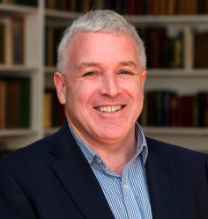
Joe O'Hara is the Inaugural Professor of Education and a member of the School of Policy and Practice in the DCU Institute of Education. He is Director of EQI- The Centre for Evaluation, Quality and Inspection and a member of the Centre for Culturally Responsive Evaluation and Assessment at the University of Illinois at Urbana Champaign. Joe O'Hara is a Past President of the Educational Studies Association of Ireland was a member of the The Teaching Council of Ireland from 2012-2016.
He was a member of the Board of Directors of the Association for Personal Services Overseas (APSO) from 2002-2004 and represented Ireland on the Council of the European Educational Research Association from 2008 to 2013. Joe O'Hara was Head of the School of Education Studies, DCU from 2010 to 2016. He is a Director and Founding Member of the Irish Evaluation Network and is a member of the Board of the Centre for Talented Youth, Ireland. Joe O'Hara is the Immediate Past President of the European Educational Research Association and President Elect of the World Educational Reseach Association. Joe O'Hara is also the President of the European Alliance for Social Science and Humanities.
Prof Martin Brown

Martin Brown is a Professor of Education at the School of Policy and Practice at the Institute of Education, Dublin City University (DCU), and co-director at EQI – The Centre for Evaluation Quality and Inspection, which is also based at DCU. From 2021 - 2025, he was Head of School of Policy and Practice.
He is an expert evaluator for the European Commission, advisor to the Teaching Council of Ireland, member of the research panel for Leargas Ireland and an adjunct faculty member of the Centre for Culturally Responsive Evaluation and Assessment at the University of Illinois,
He has planned and led evaluations in Ireland, Northern Ireland, Europe and the Middle East; working for, among others, the European Commission, the Swiss National Science Foundation, Dept. of Education and Skills (Ireland), the State Education Development Agency (Latvia) and the United Arab Emirates government. More recently 2023), he was appointed by the Department of Education, Northern Ireland, as an Academic Advisor for the end-to-end review of Northern Ireland education System.
He is an Editorial Board Member of the following Scopus-ranked and indexed Journals:
- Educational Research and Evaluation
- Springer Nature Communications
- Discover Education
- In 2025, he received a Research Ireland Research Ally award that honours the positive role of mentors and supervisors.
- He has also received two all-Island SCOTENS Awards (2018/2020) for outstanding research in Teacher Education and, in 2020, received the President of DCU Gold medal for Research Impact.
- In 2020, he also received the President of DCU Gold Medal for Teaching and Learning (2020).
- In 2021, in recognition of the impact of the EQI/DCU Shaped Professional Network and his engagement with Education Communities on the island of Ireland, Martin also received the President of DCU Gold medal for Engagement. The most recent report on this initiative can be found at the following link.
Further details at the following link
Academic Staff
Dr Shivaun O'Brien - Research Director EQI
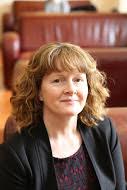
Dr, Shivaun O'Brien is a lecturer in the DCU Institute of Education, School of Policy and Practice and Engagement Director for EQI. She is a Director of School Placement for the B.Sc in Science Education, B.Sc. in PE with Biology, B.Sc. in PE with Maths and the Professional Master of Education (post-primary). She took up employment in DCU on a full-time basis in 2014, having previously worked as a part-time lecturer for 3 years. She is a member of the Centre for Evaluation, Quality and Inspection and has expertise in school self-evaluation (SSE) and school improvement. She has managed a number of research projects involving the provision of supports for SSE in post-primary schools. She has expertise in the facilitation of SSE processes in educational settings. In 2015, she established the DCU Partnership for Learning Programme, which involves the coordination and provision of a wide range of CPD opportunities for teachers in Cooperating Schools. Currently, she is involved in researching data use in Irish post-primary schools. In addition, she is involved in the evaluation of the use of e-portfolios in schools.
She was qualified as a post-primary teacher and worked in mainstream for a number of years. Having completed a Masters Degree in Adult Education and Community Development she worked in many aspects of adult and further education and specialised in work with disadvantaged youth. For 10 years she worked as National Coordinator of the Quality Framework Initiative, a quality assurance system for Centres of Education, which she established and coordinated. She worked for Louth and Meath Education and Training Board as Education Development Officer for five years where she was part of the Senior Management Team. before taking up her position in DCU. During this period she had responsibility for setting up 3 new post-primary schools, coordinating the LMETB QQI quality assurance process, developing strategic plan for the VEC, coordinating European projects, establishing a Gaelcolaiste, facilitating self-evaluation processes in post-primary schools and delivering continuing professional development to various staff teams.
Prof of Educational Evaluation Gerry McNamara - Director of Engagement at EQI
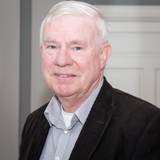
Dr. Gerry McNamara is a Professor of Educational Evaluation in the School of Policy and Practice, DCU Institute of Education and Director of Educational Evaluation at the Centre for Evaluation, Quality and Inspection (EQI) . From 1997-2007 he was Head of the School of Education Studies, DCU. He acted as course director of the Doctorate in Education , a taught doctoral programme in the field of educational leadership and evaluation from its original development until 2016.
Gerry is a specialist in educational evaluation and has planned and led many major evaluations at home and abroad, working for, among others, the Dept. of Education and Science, the National Centre for Guidance in Education, Leargas, the Equality Authority of Ireland, the European Commission, and the United Nations Development Programme.Gerry was a member of the Teaching Council of Ireland (2001/2002, 2004-2006),a co-founder of the Irish Evaluation Network, (2000) and was a member of the Council of the British Educational Leadership, Management and Administration Society, (BELMAS) from 2008-2012.
Syeda Sarah Batool Gardezi
Syeda Sarah Batool Gardezi is a Research Assistant at EQI where she is currently researching distributed evaluation and planning in schools as part of an Erasmus + Project. Sarah received her Master in Evaluation Theory and Practice from the University of Melbourne and completed her M.Phil. at Beaconhouse National University. Sarah was Head of the Department of School Inspection and Quality Assurance, in the City School Network in Pakistan. Previous to that role, Sarah was Evaluation Associate (Educational Services Private Limited, Pakistan), Associate Inspector (Dubai School Inspection Bureau) and an Internee at Education Review Office, Wellington. Sarah has worked in collaboration with the University College London and the University of Cambridge to develop context-specific school leaders and teachers’ CPD programmes. Sarah has a vast experience of inspecting schools, developing inspection frameworks, school support materials, and managing school development endeavours.
Dr Aideen Cassidy
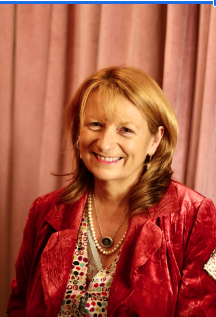
Dr Aideen Cassidy is an Assistant Professor of Education and Director of School Placement on the Bachelor of Religious Education and English / History / Music (BREHM) programme at the School of Policy and Practice, DCU Institute of Education. Aideen started her teaching career in Finglas before teaching in Jobstown in Tallaght.
After thirteen years she was appointed national coordinator of the Junior Certificate School Programme, a programme to support the curriculum delivery to students at risk of early school leaving and worked in the Curriculum Development Unit for fifteen years. She, with a team, designed and delivered a national CPD programme for all of the junior cycle subjects along with full school staff CPD in teaching and learning, assessment and literacy/numeracy across the curriculum.
Over this period the JCSP LIteracy and Numeracy strategy was put in place under the National literacy and numeracy strategy as well as the JCSP Library project where state-of-the-art libraries were built in 30 disadvantaged schools and are run by a team of librarians who received bespoke training in literacy and curriculum at second level. The impact of the literacy and numeracy interventions, along with the library programme, were researched by Aideen and the team of researchers.
Her research has focused on adolescent learning in the context of educational disadvantage. Before joining the academic staff of DCU she was principal of an all-boys second-level school in Finglas for twelve years. She now supports the BREHM students on placement with briefing lectures as part of the Professional Preparation and Practice modules in all four years of the programme and lectures in the area of literacy across the curriculum and teaching in DEIS schools and also shares a module on BEd Teacher as Professional, education and the Law.
Dr. Hadjer Taibi

Email Address: Hadjer.taibi@dcu.ie
Academic Biography
Dr. Hadjer Taibi is a postdoctoral researcher at the Centre for Evaluation, Quality & Inspection, School of Policy and Practice, DCU Institute of Education. She completed her PhD in Applied Linguistics at Manchester Metropolitan University in 2022. During her PhD, she also worked as a Graduate Teaching Assistant and a Research Assistant for the Horizon 2020 Migrant Children and Communities in a Transforming Europe (MiCREATE) project at Manchester Metropolitan University, where she was involved in various research activities. Prior to her PhD, Hadjer obtained a master’s degree in English Language and Linguistics from Abdelhamid Ibn Badis- Mostaganem University, Algeria, and a bachelor's degree in Anglo-Saxon Language, Literature, and Civilization from the same institution.
Research interests
Hadjer's research interests encompass a range of topics related to language, communication, and education. Her research interests fall within the various areas of sociolinguistics, discourse analysis, online communication, intercultural communication, language teaching and learning, and social justice in educational settings, particularly in higher education.
Dr Eemer Eivers
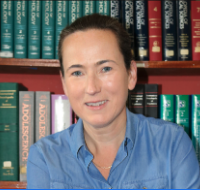
Dr Eemer Eivers is the Director of the DCU Futures Evaluation which is described by the programme team as" the most ambitious innovation in teaching and learning in the history of Dublin City University (DCU). Operating as a blueprint for the University and funded by the Human Capital Initiative, this €19.9 million project is an unprecedented commitment to radically re-imagine undergraduate education for the 21st century to meet the challenge of empowering students to be future-capable and thrive in an increasingly unscripted world defined by volatility, uncertainty, complexity, and ambiguity."
DCU Institute of Education has been contracted to evaluate this initiative and the evaluation will be housed in EQI. Dr Eivers has been appointed to the role of Director of the evaluation until the end of the programme in March 2025. Dr Eivers is a hugely experienced educational researcher who has worked as a researcher, advisor and evaluator nationally and internationally. Working with a programme team drawn from the DCU IoE, EQI and CARPE Dr Eivers is responsible for the design and implementation of the DCU Futures Evaluation Framework with a view to facilitating institutional and programme level learning from the intervention.
More information on the DCU Futures programme can be found here:
https://www.dcu.ie/ovpaa/dcu-futures
Dr Anne Rowan

Anne has over 15 years’ of experience working in the education sector. Her career began as Post Primary English teacher, before progressing into roles in higher education, including lecturing on teacher training programmes and undertaking large-scale research projects. Anne completed her PhD in 2023, which focused on capturing the experiences of international students with physical disabilities and mental health conditions in UK Higher Education. Anne’s work in the EDI space has enabled her to develop effective networks and advocate for underrepresented groups. Anne’s research background has a strong emphasis on implementing participatory research, as well as mixed methods research methods and systematic reviews.
She is proficient in analysing and synthesising the results to determine critical factors and formulate clear recommendations for clients in well-written and argued reports and presentations. Within her previous roles and in a consultancy capacity, Anne has delivered bespoke research projects related to EDI, belongs and inclusion, project evaluation and leadership and organisational change. She has vast experience in researching, scoping, and designing research projects within local government agencies, secondary education, and higher education. She thrives on understanding the problems of clients, developing strong long-standing relationships and networks, and finding creative solutions. In her spare time, Anne draws her strength from nature and being outdoors and is an avid hiker. She is also passionate about meditation and yoga.
Dr James Lovatt

Dr. Lovatt is an Associate Professor in Science Education. He is the current Head of the School of STEM Education, Innovation and Global Studies. He teaches and researches in the area of Initial Teacher Education and STEM Education. Dr. Lovatt previously served as Chair of the Professional Masters of Education and as the School of Education Studies co-ordinator for the BSc Science Education, BSc Physical Education with Biology and BSc Physics Education with Mathematics.
Dr. Lovatt completed his PhD in the area of Chemistry Education. Dr. Lovatt is a member of the Centre for the Advancement of STEM Teaching and Learning (CASTeL) and a member of a network for research-based teacher education - Teacher Education: QUality, Integration and LeArning (TEQUILA). Dr. Lovatt has participated in EU 7th Framework projects (SAILS) and is currently collaborating with colleagues to develop Horizon 2020 and Erasmus+ applications.
Dr Kevin Williams

A former president of the Educational Studies Association of Ireland, Dr Kevin Williams is the author of many books including Religion and Citizenship Education in Europe; Education and the Voice of Michael Oakeshott; Faith and the Nation: Religion, Culture and Schooling in Ireland. Most of his research is in the area of philosophy of education and he has contributed chapters to several state-of-the-art collections on the subject. He is a regular contributor in the media on issues concerning language policy in education.
Dr Paddy Shevlin

Dr Patrick Shevlin has been an Inspector with the Education Training Inspectorate (ET) Northern Ireland for 26 years. As a member of the inspectorate, as well as inspecting across a range of education sectors he has had a variety of positions, including that of Education Area Board Coordinator, which involves managing the work of a group of district inspectors within these education support services for the Inspectorate. Before that he was a teacher for fifteen years and occupied a range of senior positions. Dr. Shevlin is an education consultant with the Council of Catholic Maintained Schools (CCMS) and the honorary president of the Association of Science Education Northern Ireland Region. His research interests include Area Based Inspection, comparative education, Governance, Self-Evaluation, Leadership and Management. He has a B.Sc and Ph.D from Queens University Belfast and a B.Sc and B.Ed from the University of Ulster.
Dr Jane O’Kelly
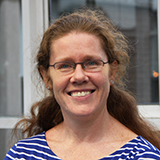
Dr. Jane O'Kelly is a lecturer in the DCU Institute of Education. Her research interests include learning communities, further education and training, blended learning and peer and self-directed learning. She lectures in Creative Instructional Design, Research methodologies and approaches, Work-based reflective practice and professional practice in education. Her background includes working in the National Centre for Guidance in Education and Leargas, supporting policy and practice in adult education, vocational education and training (VET) and guidance. She has strong ties to European Commission funded VET programmes through twenty years of administration, management, evaluation and report writing in the Leonardo da Vinci, Lifelong Learning and Erasmus+ programmes. She has a deep interest in contributing to the development of the further education sector in Ireland through research and evaluation in pedagogy, peer support and learner-centred practice to support the continuing professional development of educators and trainers.
Gerry Conyngham
Gerry Conyngham develops and delivers the quantitative modules in DCU Business School. He has been a lecturer in Statistics and Quantitative Methods for over 20 years, specialising in teaching these techniques to business students. Gerry also has over 20 years experience working as a statistical consultant in the public and private sectors. In this role he helps organisations develop survey methodologies, design questionnaires and analyse quantitative data.
Dr Francesca Lorenzi

Formerly she was Co-Chair of the BA inHumanities offered by Oscail the Distance Education Centre at Dublin City University. During thistime she engaged in research and published on evaluation of distance educationcourses. She has presented her research on assessment at several national andinternational conferences. Her most recent project focussed on the evaluationof Fighting Words a creative writing initiative initiated by Irish writer RoddyDoyle and aimed at cultivating creativity particularly among disadvantagedschool children.
She has served as Research convenor forthe School of Education Studies between 2013-2014.She is currently a member ofFurther Education and Training Research Centre (FETRC), of the Centre for Evaluation,Quality and Inspection (EQI), of the inter-disciplinary project EELF (EthicsEducation through literature and film) and of the Regional Centre of Expertisein Education for Sustainable Development (RCE Dublin) based in DCU.Her specific research interests includebut are not limited to dialogue in education, democratic and inclusiveapproaches to educational assessment, creativity in education, ethics in theclassroom, values and identity in relation to education for sustainabledevelopment.
Dr Martin Stynes
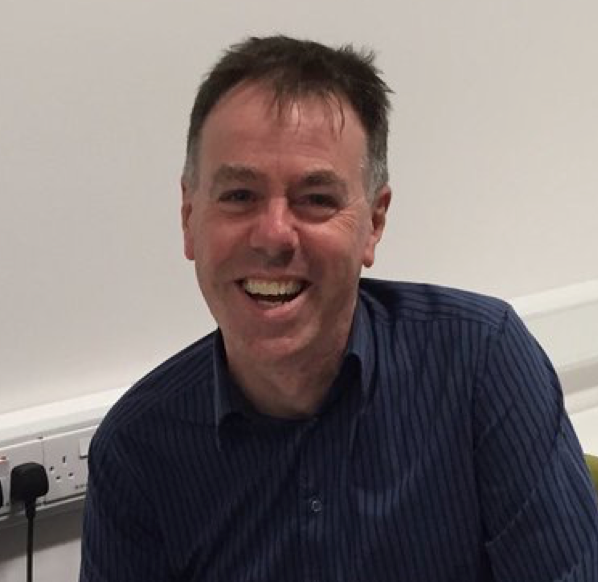
Dr. Martin Stynes is a senior EQI research associate. His role with EQI involves teaching on the Professional Doctorate in Leadership programme (Ed.D.). He authors and edits work on school leadership and on qualitative research methodologies, as well as supervising Ph.D. and Ed.D. candidates. For further information contact martin.stynes3@mail.dcu.ie In 2017, Martin leads a post-Doctoral EQI research investigation into the school leadership experiences of Irish primary school principals. His Ed.D. Dissertation on this topic is available on the DCU Doras portal: http://doras.dcu.ie/view/people/Stynes,_Martin.html Martin is the principal teacher of a primary school in Dublin city. Situated in Kilmore West, Scoil Fhursa has an enrolment of 204 boys, aged from 4yrs to 12 yrs. Widely considered as the happiest school in Ireland, it can be visited on social media or in person by appointment. Contact mrstynes@scoilfhursa.ie
Dr Bernadette Sweetman
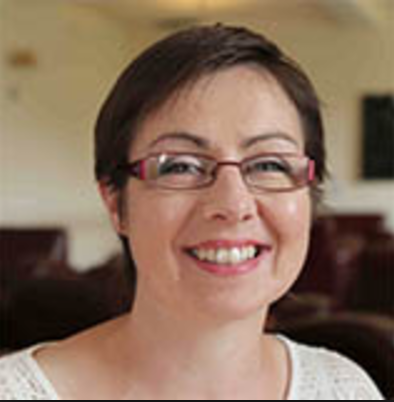
Dr. Bernadette Sweetman is a Research Assistant in the Centre for Evaluation, Quality and Inspection (EQI) at DCU. She is also a part-time Lecturer and Tutor in the Institute of Education, DCU on the B. Rel.Ed and PME programmes
Bernadette is the Irish Project Manager of the Erasmus+ research study ‘E-Evalinto: Evaluation environment for fostering intercultural mentoring tools and practices at school’. The aim of this European project, which has six European partners led by the University of Salamanca, Spain, is to combat early school leaving amongst the migrant student population at secondary level. From 2013 to 2016, Bernadette worked as Research and Development Officer for the Irish Centre for Religious Education. Here, she developed her skills in quantitative research through her work on the large-scale joint project ‘Religious Diversity and Young People’. The project was led by the WRERU at the University of Warwick. The first output of this study was featured in Diversity and Intersectionality: Studies in Religion, Education and Values (Bern: Peter Lang, 2016). Concurrently, Bernadette was conferred as Doctor of Education (specialising in Religious Education) from DCU in November 2016. Her thesis was entitled ‘Godparenthood in Ireland: An Empirical Study of the Educational Intentions Influencing Parental Selection of Godparents’, the first Irish study of its kind, resulting in Bernadette being invited to international conferences and appearances on national media.
Bernadette Sweetman has published widely in the field of Religious Education and her resource materials include the three-part series Our Family Mass: Resources for the Family Sunday Liturgy (Veritas: Dublin, 2010 – 2012); several Teacher Manuals for the Credo Series of R.E. textbooks used across High Schools in the U.S.A., and My Simple Mass Book, a children’s missal (CTS, London, 2013). She was invited to speak to various groups as an RE consultant during this period.
Dr Brendan Walsh
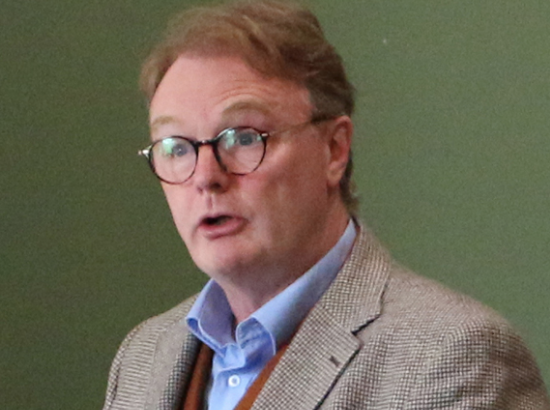
Brendan Walsh FRHistS . B.A., University College Dublin, 1989:H.Dip.Ed., University College Dublin, 1990:Diploma in Montessori Education, St. Nicholas College, 1992:Masters in Education,University College Dublin, 1995:Ph.D (University College Dublin) 2005:PhD (Cantab.) 2015.Dr. Walsh worked as a post-primary school teacher from 1989-2000 teaching English, History, Geography and Classical Studies. He lectures in the fields of History of Education and Education Policy.
Dr Walsh is an Associate Professor and former Head of the School of Policy and Practice at the DCU Institute of Education and a Research Fellow at the Center for Evaluation, Quality and Inspection at Dublin City University.
Dr. Chris O'Connor

Dr Chris O’Connor is a paramedic by profession and is a Research Associate at EQI.
Chris volunteers as an Advanced Paramedic and as the Area Training Officer with the Irish Red Cross in Monaghan. He works freelance providing Clinical Education and Consultancy Services in relation to Clinical Audit & Accreditation for a wide variety of clients, and as an Advanced Paramedic. He has also presented education programmes internationally in Denmark, Spain, Pakistan, UAE, UK and USA.
Throughout his career, Chris has led many innovative initiatives such as the introduction of pre-hospital 12 lead ECG’s in Ireland, CPR & AED Training in Primary Schools and the introduction of a blended learning approach for Advanced Life Support training. He is also experienced in clinical audit and has contributed to learning at organisational level through the development of a robust process of clinical audit which included reflective discussion.
Chris is a member of the Pre-Hospital Emergency Care Council’s (PHECC) Education & Standards Committee. He is chair of PHECC’s Research Working Group and is also a member of the PHECC working groups relating to Paramedic Examinations and Continuous Professional Competency (CPC) Education for practitioners.
Chris will bring a research interest in areas such as: Reflective Practice, Video-assisted structured reflection, Debriefing, the Flipped Classroom and the evaluation of alternative learning strategies for pre-hospital emergency care practitioners to the work of EQI and will be active in the development of evaluation processes in healthcare and allied professional areas.
Dr John O'Hara

John O’Hara has worked in ESL and Teacher Education in Europe and South East Asia for nearly 20 years. He recently completed his Ph.D under the supervision of Joe O’Hara. John has a particulari nterest in teacher education in development contexts. His research is related to whether the current model of education and development – with a predominant unidirectional policy and funding flow from the global north to the global south – takes local contexts into consideration, or propagates the use of decontextualized global policies in local contexts.
Denise Freir
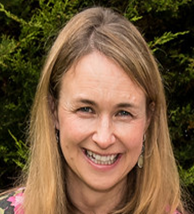
Denise Freir is currently employed as a Research Administrator in the Institute of Education and is a Researcher at EQI. Prior to this, she worked in a number of programme support positions throughout Dublin City University, as well as in Registry as Assistant Enrolment Officer
She has a Bachelor of Business Studies and an MA in International Relations from DCU. Following completion of her MA, she worked part-time for the Irish-African institutional linkage project in DCU which focused on strengthening the capacity for development-related research across a spectrum of disciplines. During her time in the Business School, she was involved in an EU funded project which focused on the strategies of social partners to address precarious work in Central Eastern European countries and Greece. More recently she was commissioned by Dochas (The Irish Association of Non-Governmental Development Organisations) to undertake research to analyse the types of jobs being advertised by the Irish NGO sector.
Associate Advisory Faculty
Professor Herbert Altrichter

Herbert Altrichter is currently Full Professor of Education and Educational Psychology and Head of Department at Johannes Kepler University, Linz, Austria. He is also the programme leader of the University’s MA in ‘School Management’. A native from Vienna, Austria, he earned his PhD in Education 1978 from the University of Vienna and started his career as lecturer at the Universities of Vienna and Klagenfurt. After some international experiences as visiting scholar to Cambridge and Deakin University (Australia) he was appointed Associate Professor of Business Education at the University of Innsbruck (1991). From 1994-1999 Herbert Altrichter was Austrian Delegate to the Governing Board of the Centre for Research and Innovation in Education (CERI, OECD, Paris). He was the founding president of the Austrian Educational Research Association (ÖFEB) and is now Treasurer of the European Educational Research Association (EERA) (2013-2017). Herbert also founded and edits learned journals (journal für schulentwicklung, journal für lehrerinnen- und lehrerbildung, journal für Praxisforschung, Zeitschrift für Bildungsforschung) and has undergone a training as organizational consultant.
His research interests include educational governance studies (school development and system reform), evaluation, teacher education and qualitative research methodology. His book ‘Teachers Investigate Their Work’ saw its 4th edition in German in 2007 and its 2nd English in 2008; translations in Greek and Chinese are available. Within the research field governance studies he conducts empirical studies about changes which have been triggered by innovations on various levels of the school system and have an impact of in-school and system-wide governance (e.g. Schulentwicklung durch Schulprofilierung? (2011); The Effects of a Free School Choice Policy on Parents’ School Choice Behaviour (2011); Bildungsstandards und externe Überprüfung von Schülerkompetenzen (2012); School decentralisation as a process of differentiation, hierarchization and selection (2014)). Recently, he has done research on school inspections and quality management regimes (Impact of school inspections on teaching and learning – describing assumptions on causal mechanisms in six European countries (2013); Neue Schulinspektion und Qualitätsmanagement im Schulsystem (2013); Does Accountability Pressure through School Inspections Promote School Improvement? (2015)). Additionally, he is interested in the conceptual and methodological foundation of governance studies (e.g. Theory and Evidence on Governance: conceptual and empirical strategies of research on governance in education (2010); Handbuch Neue Steuerung im Schulsystem (2010); Governance – Steuerung und Handlungskoordination bei der Transformation von Bildungssystemen (2011); Educational Governance als Forschungsperspektive (2013)).
Dr Richard Boyle
Richard is Head of Research, Publishing and Corporate Relations at the Institute of Public Administration, responsible for planning and management of research and publications functions. He has carried out a wide range of research and consultancy studies on aspects of public service management including public sector reform, performance measurement, evaluation, the management of cross-cutting issues, and long-term policy thinking. Richard’s major areas of specialisation include public sector performance management, monitoring and evaluation systems, and public service change and reform programmes. He is an expert on evaluation, is Chair of the Irish Evaluation Network, and has served on the board of the European Evaluation Society. He has provided support to the Department of Public Expenditure and Reform in a number of monitoring and evaluation reform initiatives.
In recent years Richard has been engaged in a number of major consultancy projects for public sector organisations in Ireland, particularly in the fields of programme evaluation, strategic management, organisational restructuring and performance management. He has also conducted research for the third sector on government funding of voluntary and community organisations. Internationally, he has conducted research on behalf of the European Commission, the OECD, and the World Bank. Among his many publications is The State of Policy Evaluation in Ireland (2014). Richard has over 30 years experience of working with public sector organisations, including over 25 years with the IPA. Before joining the IPA Richard worked in local government in London.
Dr Melanie Ehren
Melanie Ehren is a senior lecturer at the Institute of Education, working on research into effects and unintended consequences of high stakes testing, accountability systems and school inspections on school improvement and teaching and learning in schools. Her research started with a PhD on effects of school inspections. In this research she used novel techniques such as a policy theory evaluation to reconstruct the assumptions on effects of school inspections. Her paper on ‘The Relationship between School Inspections, School Characteristics and School Improvement, co-authored by Adrie Visscher, was placed on the 2010 highest cited article list of the British Journal of Educational Studies. Melanie Ehren has studied the effectiveness of accountability systems and external evaluations on school improvement in many different countries and contexts. She was part of the OECD expert team reviewing the Evaluation and Assessment in Education in Luxembourg; she studied the effects of different types of accountability measures (e.g. quality reviews) in New York City and Boston as part of a visiting scholarship at Columbia and Harvard University (sponsored by the Spencer foundation). She wrote an expert opinion on ‘Educational performance standards and external’ testing for the Austrian National Education Report of 2012, received the Austrian ‘excellent researcher stipend’ to teach at the University of Linz in June 2012 and was contracted by UNICEF to review the inspection system in Zanzibar/Tanzania.
She recently coordinated a three-year research project on the impact of school inspections on school improvement in six European countries (financed by the European Committee Life Long learning) and currently coordinates the Special Interest Group on ‘Educational Evaluation, Accountability and School Improvement’ of the European Association for Research on Learning and Instruction (EARLI) with professor Maag Merki. She is currently also leading an Erasmus+ comparative study on the impact of (‘polycentric’) school inspections, a Nuffield funded project on teachers’ responses to high stakes testing in Mathematics, and a systematic literature review on the impact of accountability systems in developing countries (funded by the UK Department for International Development). She is also the program leader of the Institute of Education’s MA in ‘Evaluation, Inspection and Educational Improvement’.
Professor Peter Tymms
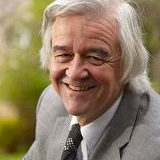
Professor Peter TymmsPhD is Director of iPIPS and international study of children starting school. He was Head of Department in the School of Education at Durham University until 2013 and before that Director of CEM at Durham University which runs projects monitoring million pupils across the UK and beyond each year. His main research interests include monitoring, assessment, interventions and research methodology generally.
He set up the PIPS (Performance Indicators in Primary Schools Project) which runs in thousands of schools around the world. Peter Tymms is an adviser to the German National Educational Panel Study.
Dr Denise Burns

Dr. Denise Burns is researching culturally responsive assessment in a project of the Centre for Evaluation, Quality and Inspection. Denise is lecturing in a semester two module of the BSc in Education and Training entitled 'Policy and Structure in Irish Education.' Denise completed her PhD in Trinity College with a thesis focused on the intellectual skill in the Irish Leaving Certificate. Denise was principal of Sancta Maria College, a secondary college in Ballyroan, Dublin 16.
Previous to that role, Denise was researcher and report writer in the Commission on School Accommodation, producing reports for the Minister. Denise worked as principal of St. Monica's College, a secondary college in Cairns, North Queensland and also as a central office administrator in Brisbane Catholic Education. Denise's research interests include, inter alia, curriculum design, assessment,document analysis, school improvement.


